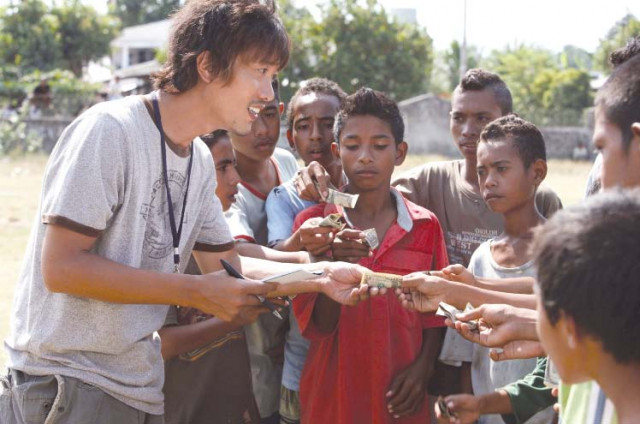Korean film festival: Islamabad gets a taste of Korean cinema
Film played at the Korean Film Festival at Pakistan National Council of the Arts.

A Barefoot Dream is high on emotions, but then Pakistanis love their drama. And besides, the melodrama in the Korean 2010 entry for Oscars consideration is unmistakably East Asian, which is entirely different (if ever slightly so influenced) from Hollywood and Bollywood (sorry, no sappy love stories here).
The film played at the Korean Film Festival at Pakistan National Council of the Arts on Friday. Admittance was by invitation only.
Korean Ambassador Choi Choong-Joo came on stage to introduce the film. He said the Korean way is becoming popular globally, especially among the youth in Asia. He said the film carries a “powerful message” of hope and courage and that he hoped it will help bring the two cultures together. His speech, at around two minutes, was refreshingly short and the film started on time.
All good, except that A Barefoot Dream tells the true story of Kim Won-kang and his ragtag team of 10 and 11-year-olds who became the first people to represent East Timor in an international sporting event. It is set almost entirely in East Timor and gives no inkling of the Korean culture.
Kim opened the only sports store in the area, in the hopes that the football-crazy kids in the area will get all their sporting goods from him. But soon he realised that no one had the money to buy stuff from him. The film chronicles his transition from a money-obsessed entrepreneur to a coach and how a dream brought together these kids and eventually an entire nation. You’ll be hard-pressed to find an easier topic to sell.
That said, I can’t help but wonder if another Korean film would not have been better suited to the occasion (and before you think otherwise, Korea has a thriving film industry that is steadily gaining international recognition). Perhaps the Korean embassy was happy with just introducing people to Korean cinema and to that end the film did a fine job, as indicated by the generous applause showered on the film at the end. However, the video looked as if it was blown up from a DVD and the picture quality was adequate at best. There were thankfully no issues with the sound.
The film screening was followed by a light ill-conceived reception at the first floor of PNCA - more than 300 seemingly famished people were stuffed into a small area barely enough to fit less than half of them. Either PNCA should have provided more space for the reception, or the embassy should have skipped the reception altogether (although the way people treated the food there, I wondered if they were not there just because of the free food).
Two more caveats. How will the two cultures come closer if the event was accessible to only a small group of people? And why was the event called a film festival if just one film was screened?
Published in The Express Tribune, November 27th, 2011.



















COMMENTS
Comments are moderated and generally will be posted if they are on-topic and not abusive.
For more information, please see our Comments FAQ